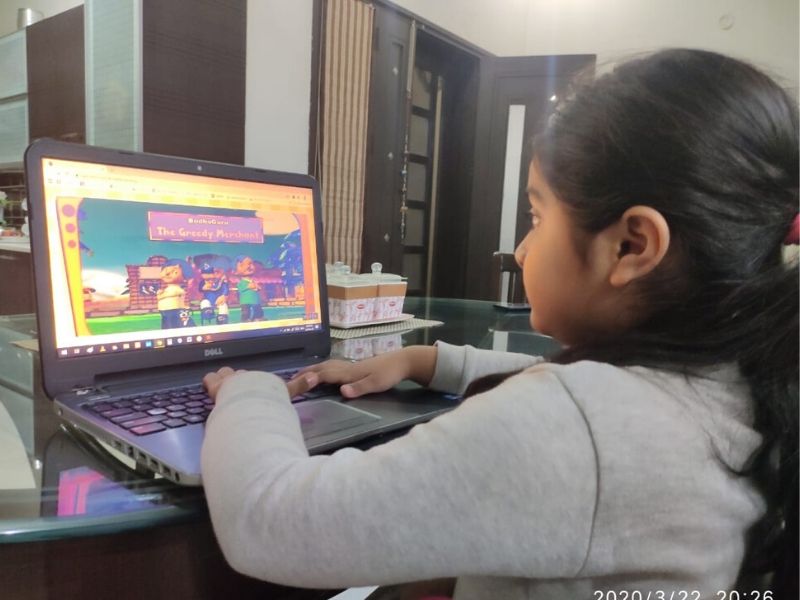– Sneha Bhagat and Parash Moni, English Language Teachers, The Scindia School, Fort, Gwalior
 A fact that we, as rational beings, cannot deny is that evolution is inevitable. Also that change cannot essentially occur without points of friction, whether these are outright catastrophes or subtle elbow strikes. The way in which our children have adapted to the crisis at hand is commendable. The way in which they have expressed their desire to perpetually engage in the process of learning has proven that we have done something right in our schools. Our systems, despite of flaws, have catered towards making children tolerant and compassionate. They have not just taken care of themselves, they have also gone out of the way to contribute their share to the society.
A fact that we, as rational beings, cannot deny is that evolution is inevitable. Also that change cannot essentially occur without points of friction, whether these are outright catastrophes or subtle elbow strikes. The way in which our children have adapted to the crisis at hand is commendable. The way in which they have expressed their desire to perpetually engage in the process of learning has proven that we have done something right in our schools. Our systems, despite of flaws, have catered towards making children tolerant and compassionate. They have not just taken care of themselves, they have also gone out of the way to contribute their share to the society.
We have been engaging in three spheres as far as learning during the lockdown is concerned. Firstly, with English language classes; secondly, with public speaking hobby classes; and thirdly, with debating webinars. We have been trying to blend technology to the best of our abilities in our digital learning spaces and yet again, our children have proven to be assets. From leading the sessions to actively engaging, creating sub learning groups, submitting assessment worksheets, designing interesting presentations- our children have outshined our inputs. More so, they have personalized assigned tasks at such levels that the notion of “every child is unique” has gained momentum. Or rather this crisis has made us reiterate this fact for the better.
In one of the interactions, a learner of standard VII had sent us images of some new dishes, which he had very diligently cooked for his family. In another instance, we had witnessed a rigorous set of arguments in a debating session, where the topic of debate was related to the effective outcomes of digitization of classrooms, where our young participants had also brought in the perspectives of teachers and policy makers. Furthermore, while closely observing a group discussion session of the public speaking classes, we had realized that a few student moderators were politely negating any interruptions by fellow speakers and had distributed the speaking time among the delegates, judiciously.
Our takeaway from these engagements has been two fold. Firstly, our faith on children has cemented during the course of these few months and this rock-solid phenomenon must precede the otherwise existing presumption of children being incapable of being responsible. Secondly, we are convinced that with or without a crisis, we, as thinking and learning individuals, must evolve with changing times.
We might want to extrapolate these findings across contexts in retrospect, yet the fact of the matter would remain that children are the architects of our future, and hence, the other side of the pandemic must be a thriving consequence of unlearning and relearning, making the space children-driven, both in essence and in practice. Whether we want the process to be a catastrophe or elbow strikes, we have to decide that for ourselves!
The views, thoughts, and opinions expressed in the article belong solely to the author, and not necessarily reflect the views, thoughts, and opinions of EducationWorld.























